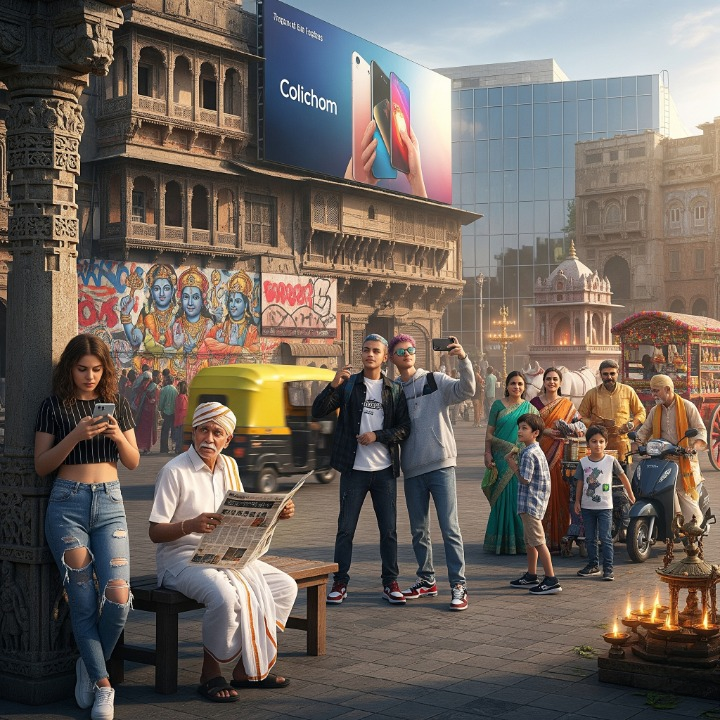New Delhi, India, 2025 — The Indian Constitution uniquely embraces both socialist ideals and democratic principles, aiming to foster equality while upholding individual freedoms. However, the interplay between these ideologies often sparks debates about their compatibility. While socialism emphasizes economic equity and collective welfare, democracy prioritizes political freedom and individual rights. Are these values inherently at odds, or can they coexist in a balanced framework?
This article explores the complex relationship between socialism and democracy in India, supported by official reports and real-world examples.
Socialist Ideals in India: A Constitutional Mandate
India incorporated socialism into its governance model to address historical inequities and uplift marginalized communities. The 42nd Amendment (1976) explicitly added the term “socialist” to the Preamble of the Constitution, underscoring a commitment to reducing disparities.
Socialist Policies in Action
- Welfare Schemes
- Initiatives like MGNREGA and Ayushman Bharat aim to provide basic income security and universal healthcare.
- Impact: A 2024 NITI Aayog report highlighted that MGNREGA benefited 54 million rural households last year, significantly reducing rural distress.
- Public Sector Dominance
- Historically, industries like steel and railways were state-controlled to ensure equitable resource distribution.
- Impact: While effective in early years, inefficiencies led to reforms like the privatization push in the 1990s, sparking debates about socialism’s relevance in a market-driven economy.
Democratic Principles: The Pillar of Political Freedom
India’s democracy, celebrated as the largest in the world, ensures universal suffrage and upholds fundamental rights such as freedom of speech, religion, and equality.
Key Democratic Features
- Political Representation
- The 2024 General Elections recorded an 82% voter turnout, showcasing vibrant participation (Election Commission of India).
- Judicial Oversight
- Landmark judgments by the Supreme Court have protected democratic rights, including the Right to Privacy (2017) and the decriminalization of Section 377 (2018).
Tensions Between Socialism and Democracy in India
1. Economic Equality vs. Individual Freedom
- Conflict: Socialist policies like wealth redistribution often face resistance from those who prioritize property rights and market freedom.
- Example: The Farmers’ Protest (2020–21) against new agricultural laws highlighted tensions between market reforms and social welfare.
2. State Intervention vs. Free Speech
- Conflict: State control over industries and media can suppress dissent, contradicting democratic ideals of free expression.
- Example: The 2024 World Press Freedom Index ranked India 150th, underscoring concerns about state influence on journalism.
Can Socialist Ideals and Democratic Principles Coexist?
India’s governance demonstrates attempts to balance these ideologies:
- Decentralized Planning
- Empowering local governance through Panchayati Raj aligns socialist goals with democratic participation.
- Example: Increased budget allocations in the 2025 Union Budget for rural development reflect this synergy.
- Public-Private Partnerships (PPPs)
- Combining state welfare initiatives with private efficiency bridges the gap between socialism and market-driven democracy.
Lessons from Global Democracies
- Scandinavian Model
- Countries like Sweden and Norway blend robust social welfare systems with free-market economies.
- Lesson for India: Expanding social equity programs without stifling innovation and entrepreneurship can harmonize these ideals.
- China’s State-Driven Model
- While not democratic, China’s controlled socialism demonstrates the trade-offs between equity and individual freedoms.
- Lesson for India: Avoiding authoritarian tendencies is critical to maintaining democratic integrity.
Conclusion: A Delicate Balance
In India, the coexistence of socialist ideals and democratic principles presents both challenges and opportunities. Socialism addresses structural inequities, while democracy ensures freedoms and accountability. The key lies in striking a balance where both ideologies reinforce rather than undermine each other.
By fostering inclusive policies, promoting transparency, and safeguarding rights, India can continue to evolve as a nation that upholds its constitutional promise of justice, liberty, and equality for all.


Leave a Reply